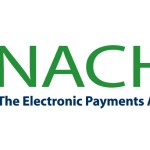ACH Vs Credit Cards: Pros & Cons
Transactions involving credit cards or automated clearing house (ACH) are electronic funds transfers (EFTs). Many merchants and consumers would rather make electronic transfers than use cash or paper checks. ACH stands for “Automated Clearing House” and draws directly on funds in checking or other bank accounts – no middle man. Credit cards are revolving debt instruments that enable individuals to use borrowed money to make purchases. Credit card issuers assign each cardholder a credit limit. Cardholders make monthly payments to clear the debt. Charge cards are similar to Credit Cards but are expected to be paid off monthly. Credit Card companies are the proverbial “middle man”.
Today with the advent of mobile “smart” devices (phones, tablets, pads) the business case for plastic credit and charge cards is weakening. The physical cards are being replaced by virtual “wallets” that hold “virtual” card accounts. FinTech riding on the shoulders of the banking rails is fast replacing both the traditional bank account and traditional credit card account. With current technology it is becoming increasingly difficult to justify the additional layers of complexity and costs associated with traditional banking and Credit/charge card accounts. Due to costs, efficiency and flexibility ACH and electronic paper checks are growing and playing a larger role in government, utilities, service companies, internet and FinTech as a form of payment.
For example, let’s say a technology service company opens an ACH account using an ACH hosted technology provider like ACHQ. There is no upfront costs associated with equipment or software, since the technology is hosted. The typical merchant is able to process payments as fast as or faster than credit cards or paper checks and at a fraction of the costs. Credit Cards still offer an advantage for those customers that wish to finance their purchases or who wish to accumulate “points” or “rewards” as well as a “guaranteed” transaction payment to the merchant. However, for the service company ACH provides benefits in time savings, flexibility and cash flow. In addition, there are effective methods to “guarantee” an ACH payment. As the ACH costs savings add up the savings is available to extend credit, rewards and other incentives creating additional pressure on traditional bank and credit card accounts and further reinforcing the use of the “banking rails” (ACH and Electronic Paper Checks). Recent technological advances actually initiate the ACH transfer from the consumer’s bank account further lowering costs and essentially “guaranteeing” funds.
Risk of fraud is another area of concern regardless of the payment type. Credit cards utilize a network to verify whether somebody is within their credit limit and then after the network (Visa/Mastercard) approves the trade, those funds are guaranteed to the merchant. In financial business parlance, this is known as a “guaranteed funds” trade.
ACH, by comparison, does not guarantee the funds – which is why you do not tend to see it as widespread for point of sale retail transactions at retailers that are physical. The transactions are usually batched to reduce price which causes delay of a day (or more) to settle. Keep in mind, however, same day ACH credits go into effect September 23rd, 2016 and same day debits go into effect in September 2017. With the advent of same day ACH and the further adoption of ACH products that initiate the transactions from a consumer’s on line banking application the competitive advantage of credit card “verification” and “guarantee” will diminish or be eliminated altogether.
There are instances where a merchant using ACH or electronic checks (check 21) can find out days later (and sometimes months afterwards) that the customer had insufficient funds (NSF) or is claiming a return subsequent to the fact. The retailer then has to take manual remediation with the customer to try to get those funds – billing for bounced check type fees, sending customers collections, etc. The charge card business usually takes on the danger of collection of good funds should the demand arise, since a consumer may neglect to pay their charge card bill. However, even in the credit/charge card business there are “charge backs” where the customer simply declines to pay for the product or services.
Now, with all of that being said, what’s the number 1 benefit of using ACH over credit card processing?
Lower Fees!
ACH transactions usually have the lowest fees of any payment system. Typically, as a merchant collecting payment from your customers, you end paying, on average, 1/5 to 1/20 the cost you would if you utilized credit and debit cards. That’s a lot of savings and money that can go elsewhere in your business!
Let us help you get started with ACH today, or see how we can save you money on your credit card processing contact us
or call our sales team at 877-743-1551








